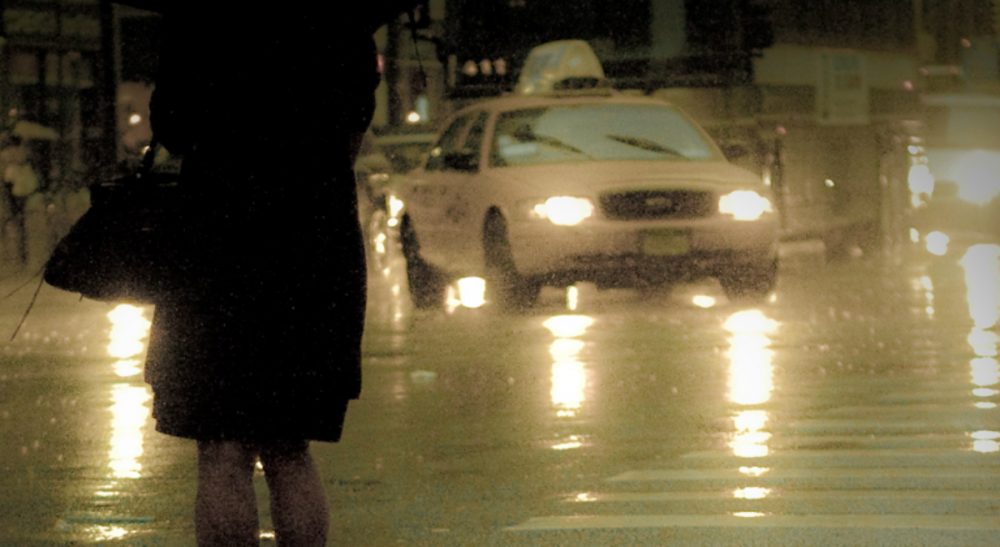Advertisement
Taxis, Uber And The Stakes For Right Of Way

In order to get my hack license, I had to go to the Boston Police Department, pay a fee, go to a week’s worth of classes at the police academy in Hyde Park, take a test covering subjects of taxi regulations, traffic laws and basic knowledge of the city, and then go back to the police department and pay another fee for my license (renewable each year for another fee). I then had to go to a cab company, leave a $500 deposit and wait with a pool of drivers for an available cab. To pick up a fare at Logan, I have get into the end of a long line of cabs at the taxi pool and wait for up to three hours to get called to a terminal. It’s the same for the taxi stands at Prudential or Quincy Market or any of the major hotels. At the end of the shift, I pay for the cab rental, gas, insurance and administrative fees, taxes and the dispatch system. I might be lucky to get $200 for a 12-hour shift.
...I pay for the cab rental, gas, insurance and administrative fees, taxes and the dispatch system. I might be lucky to get $200 for a 12-hour shift.
So to have some Joe Blow who simply has a car, a valid driver’s license and can attest to being properly insured sign up with a computer app and then drive for however long he likes and pick off fares I’ve patiently waited for on the cabstand makes me blow a gasket.
I’m not alone.
Uber, the ubiquitous ride-sharing app that connects passengers with drivers for hire, presents an existential threat to the taxi industry. More and more people are abandoning traditional taxi companies in favor of this easy peer-to-peer system. Why call a cab when Uber can generally get you a car more quickly, give you the name of the driver and a photo of the vehicle, tell you how long it will take, as well as the expected fare — and do it more cheaply, to boot?
No wonder cabbies around the world have mounted protests claiming that Uber steals business. Our taxi companies have filed lawsuits, and hackney regulators have threatened sanctions to stop the service. In Cambridge last week, things got heated when the license commission unveiled proposed regulations to kill — uh, regulate — the service. The city claims such regulations are necessary to ensure public safety, standards of service and fair competition. Opponents see the regulations as a desperate attempt to protect a sclerotic, government-created monopoly.
Both sides are right.

Communities have an absolute interest in regulating transportation. Taxi service is an essential component of public transportation, along with planes, buses, subways, trains and ferries, all of which are regulated. Citizens need to know that when they call for a cab, one will show up, take them safely to their destination, and not overcharge them by taking some convoluted route. Cities and towns --particularly those such as Cambridge and Boston, which rely on tourism — need to know this, too.
Which is why Uber goes right to the heart of everything that is wrong about the traditional, medallion-based taxi industry. Too often, taxis show up late or not at all. The cabs are often filthy and the drivers rude, reckless or clueless. When it’s rush hour, or when there’s a big event or bad weather, you can never seem to find one. The number of taxi medallions, and thus the number of cabs, is fixed — not by quantitative analysis of need, but by fiat. No wonder medallions can sell for more than $600,000. It’s a monopoly created by politicians and run by government, with little incentive to change or innovate. Uber achieves what the taxi industry should have been doing all along: adapting to new technology and looking for ways to improve service.
The fight will continue, but in the end, it’s likely that a compromise will be reached. My guess is that taxi companies will adopt dispatching systems built on the Uber model. But the days of the medallion system are numbered. Uber has shown that the system needs to be open and competitive. But drivers for Uber will also have to submit to some form of regulation to ensure safety and quality of service. Right now, when things go wrong, passengers and drivers are on their own. Uber claims that it cannot be held liable when there’s an accident or dispute, and that’s because it doesn’t provide transportation. Like eBay, Uber is a middleman. It just connects buyer to seller. My guess is that this will change, too, once the lawyers and the insurance industry get involved.
Until then, I’m looking at my options. And right now, Uber doesn’t look so bad.
Related:
